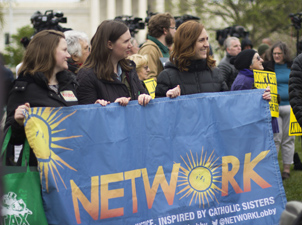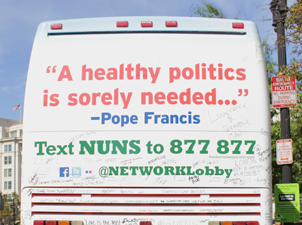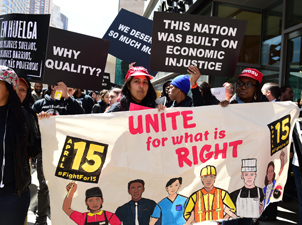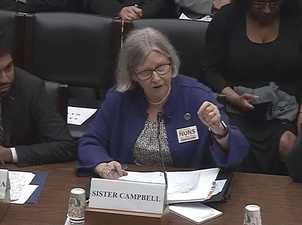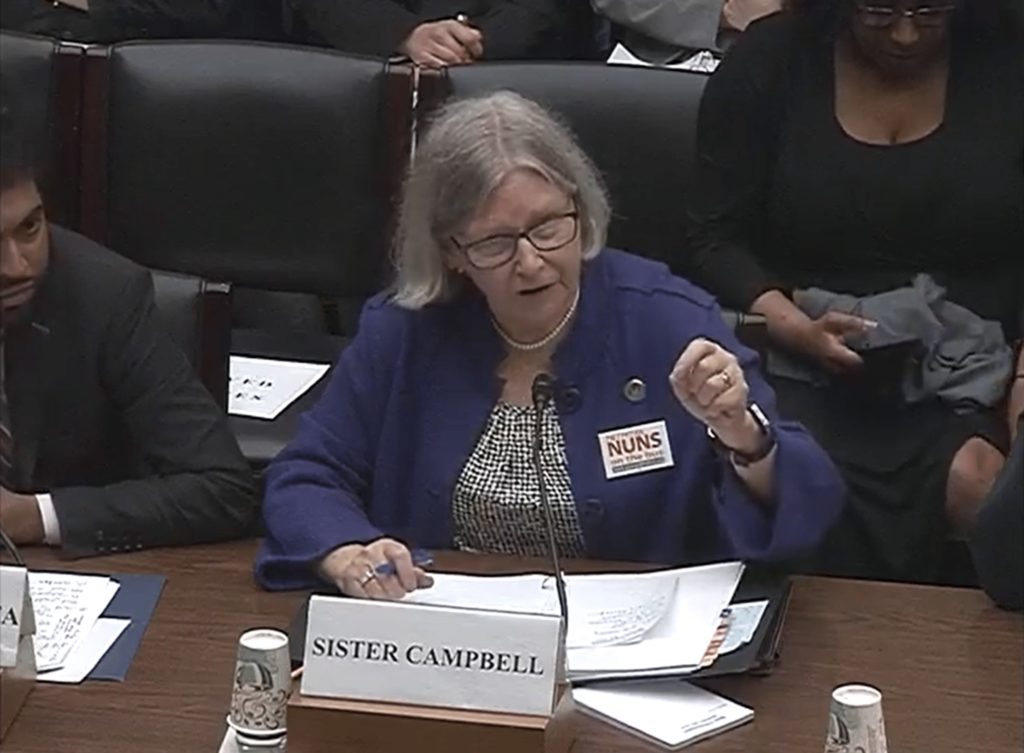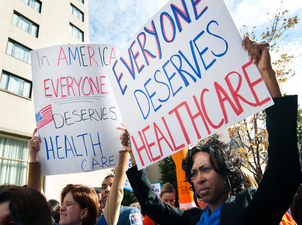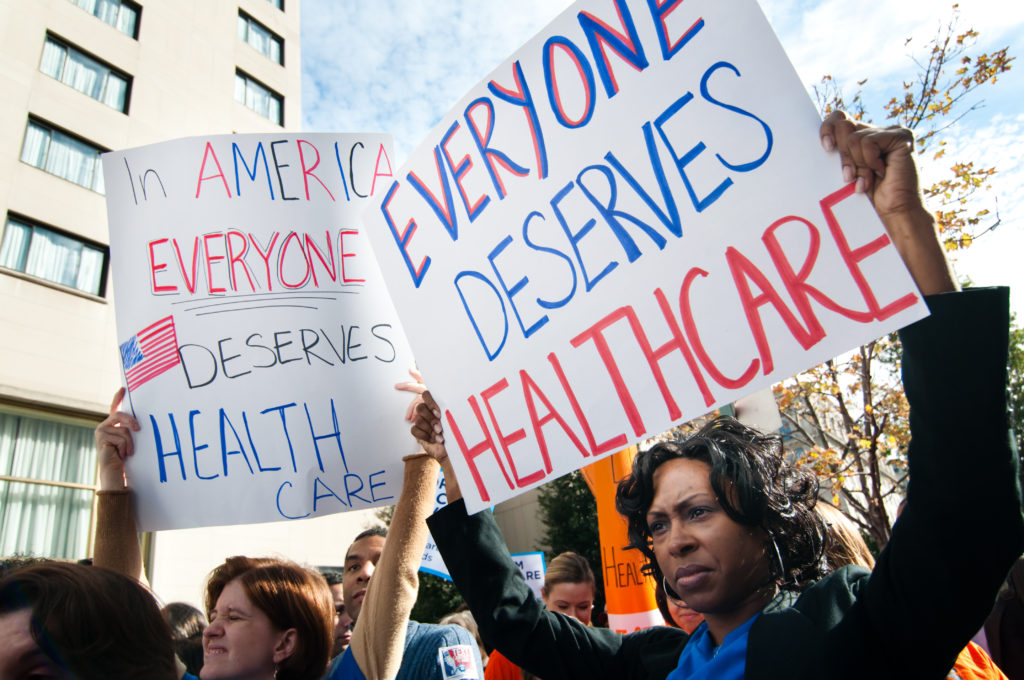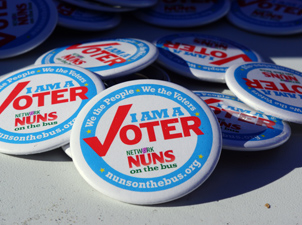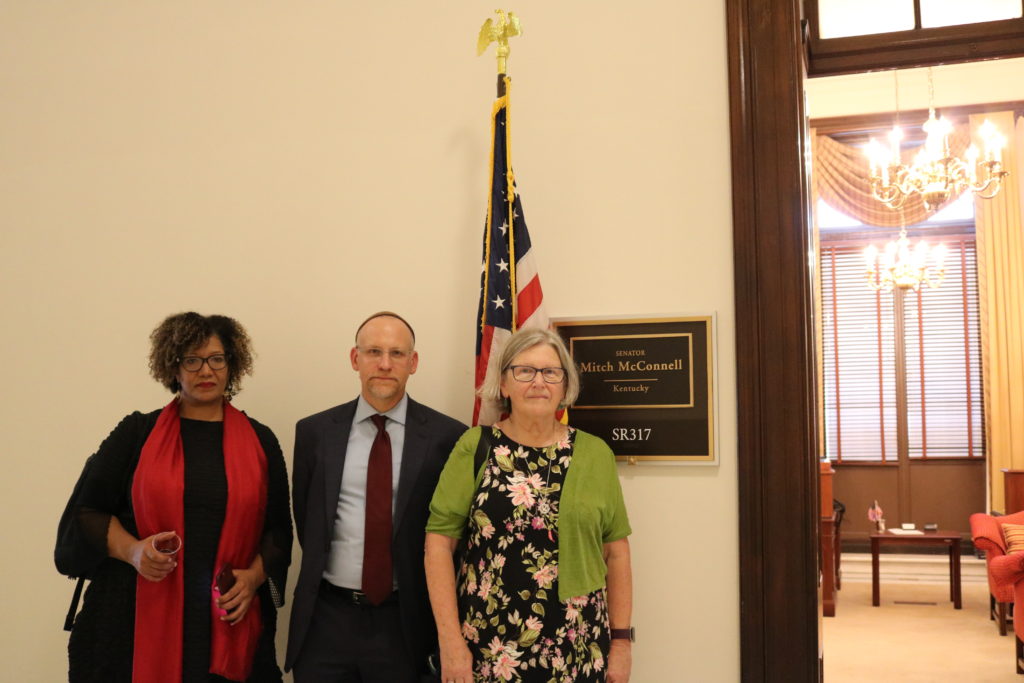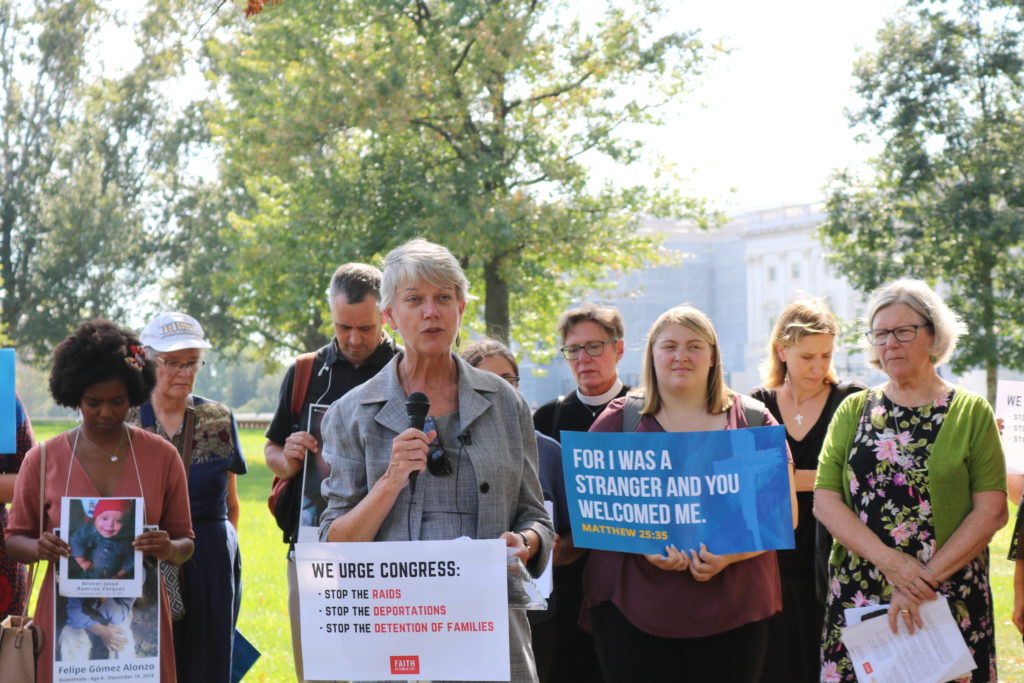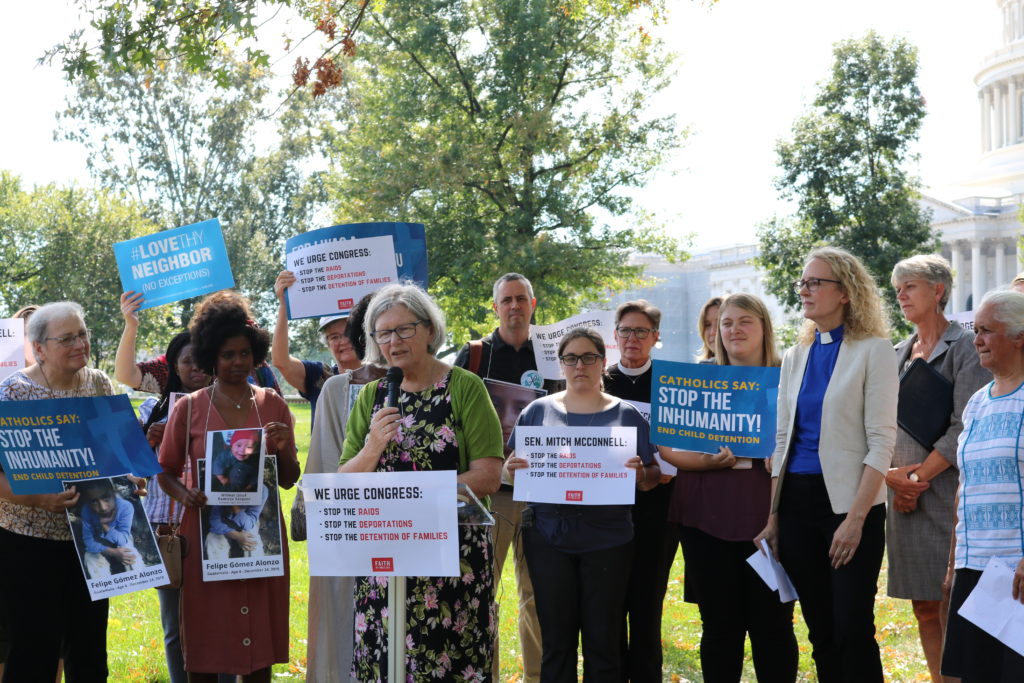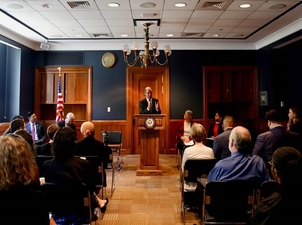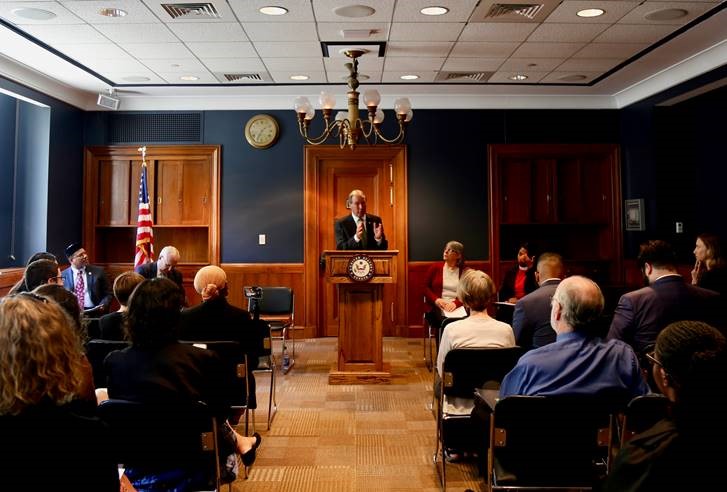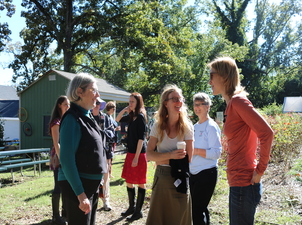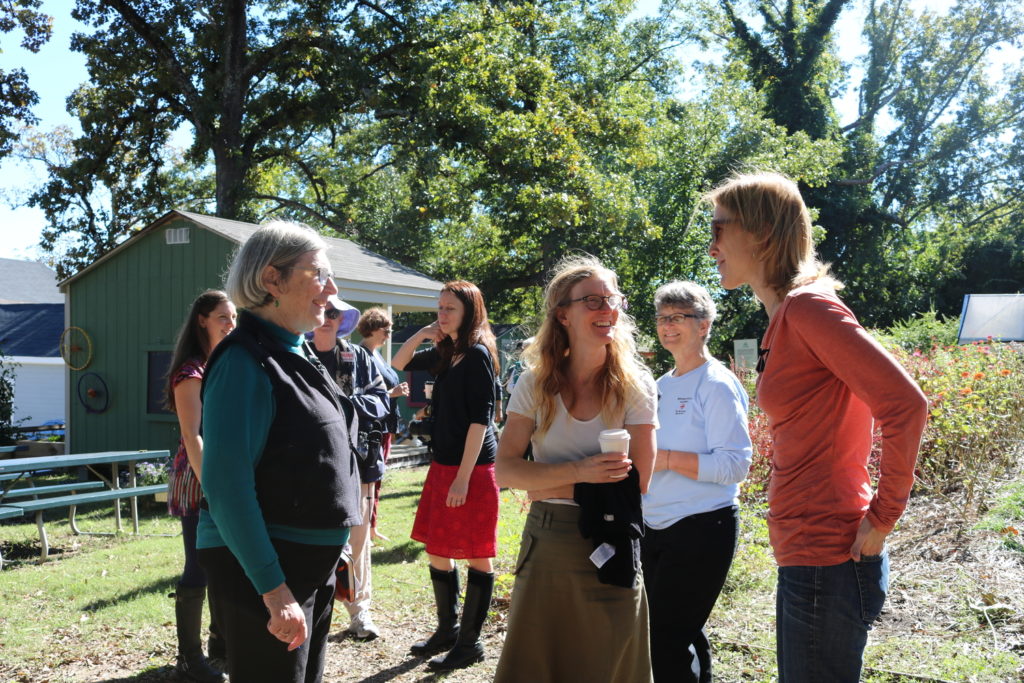
This Easter, We Can Start the Healing
Sister Simone Campbell, SSS
April 13, 2020
Easter is a celebration of the core mystery of the Christian faith that life follows death. In Jesus’s resurrection, love conquered death and showed the bewildered disciples a way forward. The world was changed and the love of God triumphed.
Today, the brokenness of our world has been exposed by the coronavirus. Millions in our nation go without health care or an income that can sustain them in crisis. Our President and his administration are unprepared and often uninterested in helping the most vulnerable. We are sheltered at home, praying the disease will pass us by. It feels too much like a continuation of Good Friday. Our Easter of 2020 seems to be missing. Unless love conquers our current politics of exclusion, how can we be redeemed? Our healthcare workers show us the path forward.
Every front page across the country is showing the generosity and self-sacrifice of our healthcare professionals. Their willingness to be of service to critically ill patients in the midst of this pandemic is heroic. As a Christian, this self-giving mirrors Jesus command: Greater love has no man than this, that a man lay down his life for his friends (John 15:13). This is the story of Good Friday and Easter.
We who are not healthcare professionals can do our part. We are sheltering at home. We are making cloth masks. We are connecting with friends and neighbors while social distancing. When we learn how connected we are, we discover that we have the courage to respond to the needs around us. We can make a difference. This is the best of the human species.
But then I realize that still not everyone in our wealthy nation has access to health care. States have still refused to expand Medicaid coverage for their most vulnerable citizens. Policy makers have consistently kept immigrants – documented and undocumented – from access to health insurance on the exchanges or to care at all. This was all a political calculus on the part of some politicians to make low income people and immigrants the enemy. This is the most catastrophic public health policy that I can imagine. This novel coronavirus is showing the consequence of their political games. It is a threat to all in our nation.
And then the President and his advisers are starting to talk about “opening up the economy.” The President’s approach once again puts the economy over the needs of the people. This is wrong. Pope Francis makes it abundantly clear that we must say NO to an economy that kills. We must say NO to an economy of exclusion and inequality. We must say NO to sacrificing our people so that the wealthy may continue to make a profit.
In this week that we Christians call Holy, we must let our faith shine out in this challenging time. We must ensure that all have access to healthcare regardless of income or immigration status. We need to support all who are valiantly trying to do their part to keep others safe. This is indeed what Jesus did in caring for the sick and confronting politicians who challenged his right to heal.
This Easter, we must let our faith shine in our resistance to putting the economy over the needs of the people. We must resist the political messaging that put the economy before the people. We are called to embrace policies and an economy that works for all.
This crisis has shown that politicians can still enact laws to meet the needs of the people. There is a glimmer of hope in that recognition. Many politicians didn’t believe in the social safety net until they themselves began to fall through the cracks and become vulnerable. This moment of awareness got them to vote for assistance to vulnerable families.
Let us continue to use this historic moment of reckoning to let love conquer all. Our nation is certainly broken, but it can be healed. Together we can cast aside the policies of exclusion that leave out our most vulnerable. This Easter, we can’t come out of physical hiding just yet, but we can start the healing with love for one another and advocating policies that reflect that love. Let us all be more like the healthcare professionals. Let us generously care for our neighbors and ensure that all can survive this moment. Let us put people first. Let us be Jesus in this time. Let us love one another. This will be an Easter gift to our nation.







